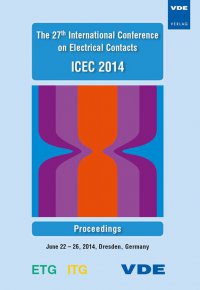Long Term Behavior of Electrical Contacts with Crossed Rods under Various Environmental Conditions
Konferenz: ICEC 2014 - The 27th International Conference on Electrical Contacts
22.06.2014 - 26.06.2014 in Dresden, Deutschland
Tagungsband: ICEC 2014
Seiten: 6Sprache: EnglischTyp: PDF
Persönliche VDE-Mitglieder erhalten auf diesen Artikel 10% Rabatt
Autoren:
Dreier, Sebastian; Luecke, Nils; Großmann, Steffen (Institute of Electrical Power Systems and High Voltage Engineering, Technische Universitaet Dresden, Dresden, Germany)
Inhalt:
The past decade has seen the rapid development of power generation and transmission infrastructures in areas affected by harsh environmental conditions and the use of elevated operating temperatures which can result in enhanced aging of electrical joints and contacts. However, the operation of electrical joints and contacts applied to such conditions has to perform stable and reliable for long time. The purpose of the study is to investigate the long-term behavior of electrical joints and contacts with respect to the environment. Crossed rods made of electrolytic tough pitch copper, uncoated and coated with tin, silver or nickel, and aluminum, EN AW-6060 or -1050A, were selected as samples for experiments. During the experimental investigations the contact temperatures are at standard temperatures of 90 °C and elevated temperatures of 200 °C for selected samples. A tension spring with a low spring constant is used to apply a force F of 200 N. Thus, elastic and plastic deformation of the contact area occurs and is discussed. The samples got exposed to different environments. Due to the experimental design chemical reactions should be the most critical among the aging mechanisms. First results of the measured contact resistance after a few thousand operation hours with respect to the environment and operation temperatures are presented.


